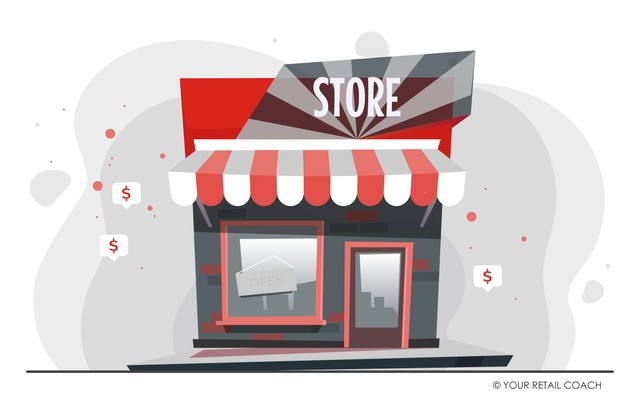7-11 Convenience Stores - A Case-Study

Background:
7-11 stores were started in Dallas, Texas (USA) and was known as Totem Stores from 1928 to 1946. Later, a majority stake was bough over by a Japanese company named Ito-Yokado in 1991. From there on it was reorganized as a completely owned subsidiary of Seven-Eleven Japan Co. Ltd. Currently, the convenience store chain operates 71,000 stores across 17 countries.
The case study focuses on the success of 7-11 stores due to its focussed approach to supply chain and inventory management. The case study is meant for business owners who seek to provide value to their customers through the improved supply chain and inventory management. The attempt here is to highlight key takeaways that have made 7-11 one of the most distinguished convenience store chains across the globe.
Introduction:
7-11 has positioned itself as a company “that responds to change.” In line with this thought process, it has established a comprehensive information system that is agile enough to respond to changes in the expectations and demands of the customers in a timely manner. The top leadership of the company defines it by the term “breakthrough thinking without being constrained by the past” for processes that allow the company to offer such high-value services to its customers. The key to the success of 7-11 is their ability to gather data about their customers and transform it into information. Moreover, tight integration between company partners allows the sharing of this information through a highly-evolved data-rich supply chain management.
Components that Contribute to the Success of 7-11 Stores
Today, 7-11 stores are known the world over for their unique business processes and methodologies that make it a stand out brand among the topmost retail chains in the world. But it is not something 7-11 achieved in a quick span of time, it has invested in technology and resources to make a positive impact on both its customers and stakeholders alike. Here we enlist critical components that paved the way for its dominance among convenience stores, here it is:
I. 7-11 Business Model
The 7-11 business model canvas is primarily focused on providing daily usage items around the clock in densely populated areas in a city and caters to the customers on 24X7 basis. If we look at the business model ( https://www.yourretailcoach.ae/services/business-model-development/ )of 7-11, these parameters happen to be the key features of the business model:
Gross Profit Splitting Method: According to this mechanism, the gross profit earned by the store is split equally between the store owner and headquarters in accordance with pre-defined criteria.
Open Account System: A financing system enabled by 7-11 headquarters is put in place to enable franchisees to start their business with a relatively small amount of funds in a stable manner.
Guaranteed Gross Income: A system is in place that guarantees franchisees a certain amount of income emanating from the sales at the store.
II. Global Footprint
To date, there are around 71,000 stores across 17 countries, out of which more than 20,000+ stores are located in Japan alone. It is closely followed by Thailand, South Korea, and the United States with 11,200, 9,400, and 9,300 stores respectively. Today, the 7-11 is a global brand is part of the Seven & I Holdings Co. which is one of the top retailers in the world.
III. Business Strategy
Although it is a convenience store, one can get all the daily essentials at a 7-11 store, here we are going to spell out the various strategies adopted by the brand:
Product Strategy: The product line mainly caters to food and drinks for breakfast, lunch, evening snack, dinner, and a late-night snack.
Pricing Strategy: The brand keeps the price of the items as competitive as possible compared to other retail stores. It includes a mix of generic items like coffee, chips, egg, and bread along with privately labeled products that are priced a little higher. These items are priced higher due to the exclusivity associated with those products.
Promotion & Advertising Strategy: The brand follows an omnichannel approach and sticks with digital promotion and the display of promotional material at physical stores. Apart from this, the brand is known to celebrate 7-11 day as a strategy to encourage more customers to visit the stores.
IV. Franchise Model
7-11 franchise model works as an “operator model”, wherein the brand buys the store, land, building, and equipment and then leases back the store to the owner. Apart from this, the franchisee is expected to invest close to approx. $150,000 to set up the store. The investment amount shall vary as per the store location, size and the market it's been operating into.
Under the franchise system ( https://www.yourretailcoach.in/franchise-development/ ), business operations are divided between the headquarters and the franchised stores. The system, according to 7-11, promotes sustenance and prosperity between both the parties engaged in the business relationship.
Conclusion:
Even though 7-11 has been exceptional in providing value to its customers, it has been able to do this due to its proficiency with supply chain and inventory management. The brand is known to invest heavily in technology to bring down costs and improve efficiencies across the board. Moreover, with its strategic placement of stores (prime locations) and distribution centers, it has been able to bring down transportation costs as well as improve efficiencies in stock replenishment. Overall, at 7-11, one can find both the front and back end operations working like a well-oiled machine to provide unmatched service to its customers compared to other retail brands.
If you aspire to set up a Supermarket or grocery business and inspire from 7-Eleven management techniques, then get in touch with YRC (https://www.yourretailcoach.ae/) retail consultants (https://www.yourretailcoach.in/), for further information and guidance.